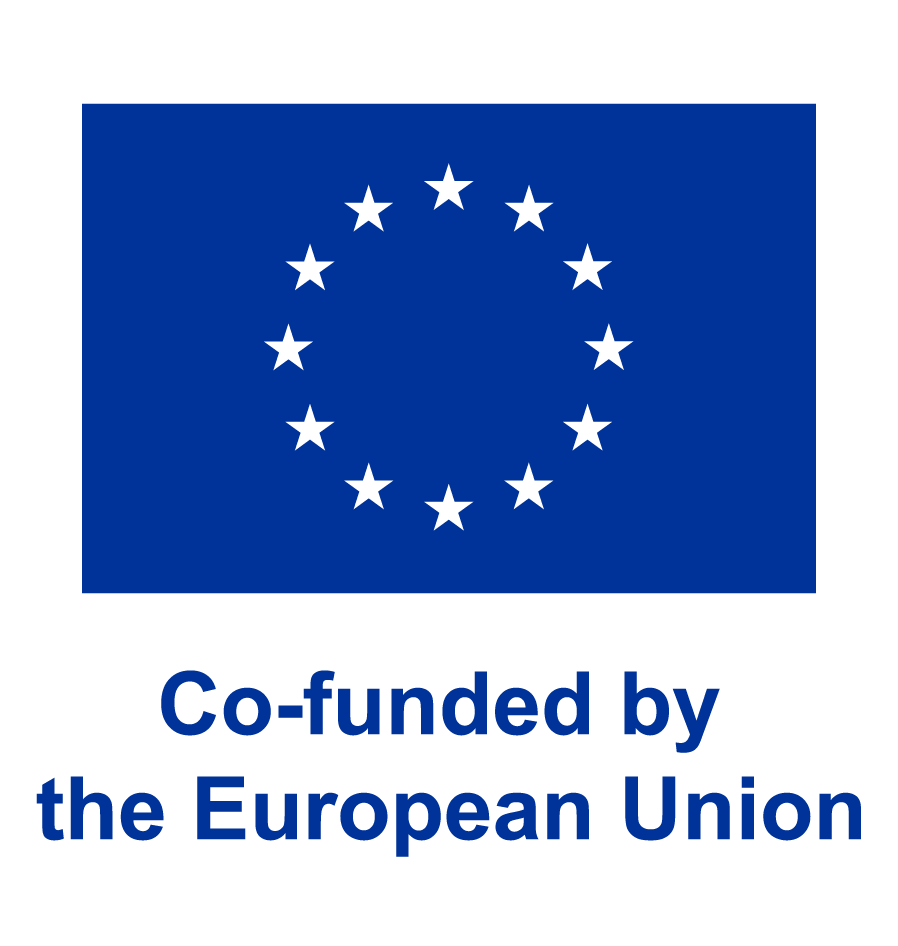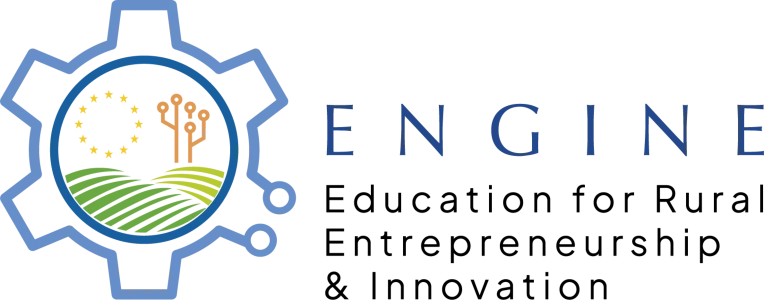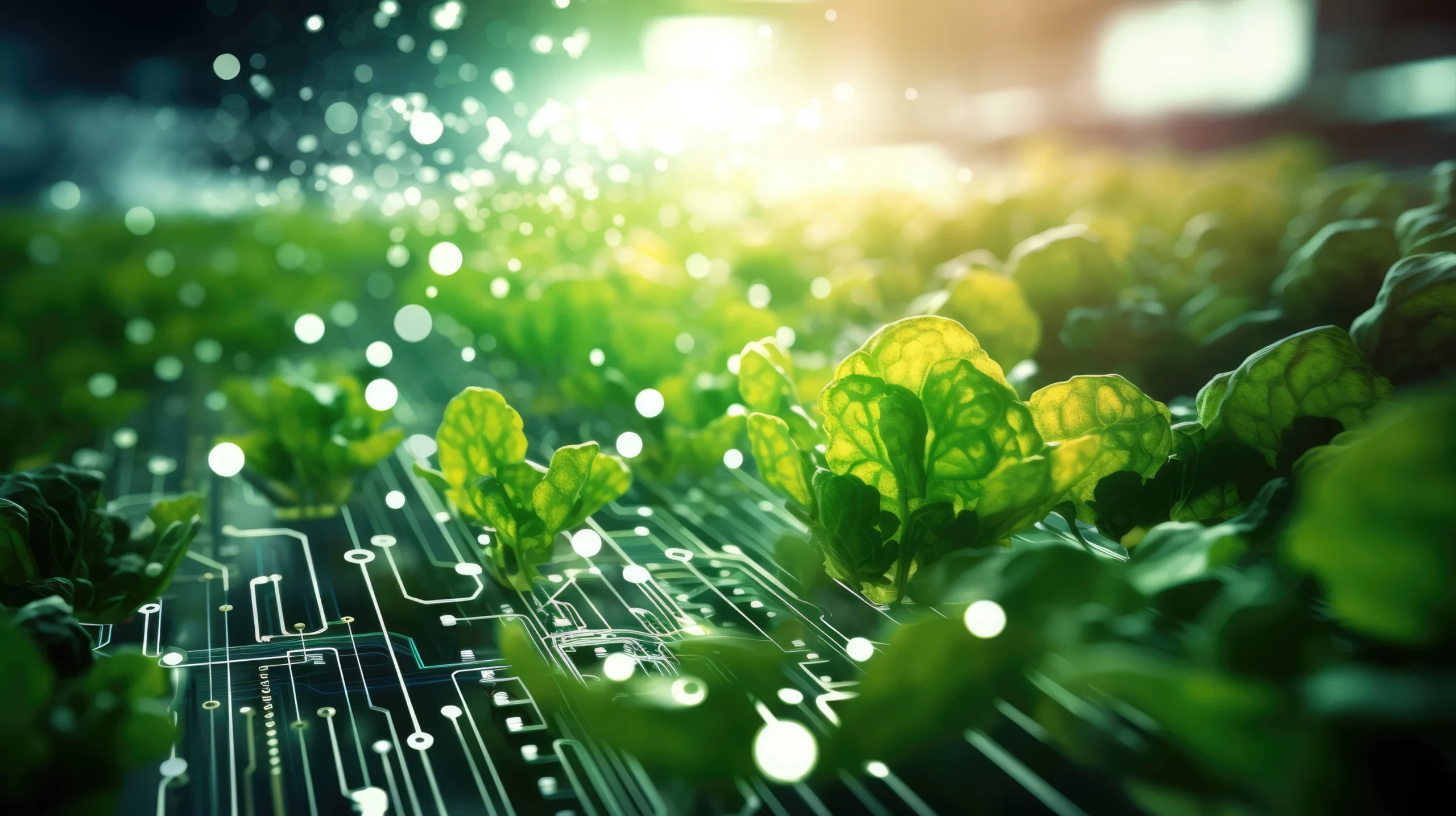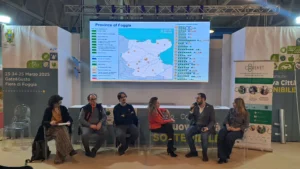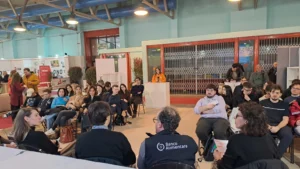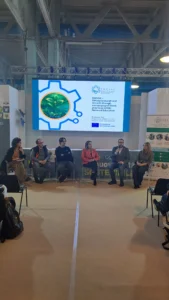The University of Foggia participated in a talk organized by the Municipality of Foggia as part of the initiatives “The new Sustainable City” on 24th March 2025, at the “Gate & Gusto Fair” in Foggia, an important annual fair trade for the province dedicated to food, tourism and local agrifood business.
The talk, titled “Circular economy and the fight against food waste: tools and good practices for sustainable rural development”, involved Mariantonietta Fiore and Fedele Colantuono from the Department of Economics of the University of Foggia, together with Gustavo Vassalli (Director of the food bank “Banco Alimentare della Daunia”), Francesco Sansone (Istituto Poligrafico e Zecca dello Stato of Foggia) and Assunta di Matteo (multifunctional farms “Rete Fattorie Sociali”). Over 40 people attended the event, including students, representatives of local institutions, organizations and companies in the area. The whole talk was moderated by the journalist Danila Paradiso.
The representatives of the Department of Economics, after introducing the key concepts of sustainable development for agri-food and the Department’s commitment to a multi-level and multi-actor approach with the various representatives of the territory, shared some of the concrete tools and initiatives in the field, such as the various National and European projects in which they are involved.
Among those, the event was set up to engage stakeholders in discussions for a consultation meeting about sustainable rural development and provided an opportunity to showcase our new project ENGINE. The core of the meeting discussion was the map of innovative and entrepreneurial initiatives in the rural area of the Province of Foggia. Stakeholders were encouraged to provide feedback on its accuracy and relevance through an anonymous questionnaire and open talk. This process allowed participants to assess whether the map effectively reflects rural development potentials (RDP) and rural local resources (RLR) within the area.
Overall, the rural meeting successfully achieved its primary objectives of introducing the ENGINE project and gathering stakeholder feedback on the development potential map.
The presentation continued by illustrating the role of the Department in preparing training materials that bring students closer to the issues of environmental sustainability in a creative way (Erasmus+ CL4Bio project), towards professional growth with a cultural background linked to the territory, becoming future experts and promoters of local excellence (Erasmus+ ENGINE project).
The significance of training and the advisor’s role in agrifood business were enriched by the contributions and testimonies of the other speakers. Through their social commitment, they emphasized the importance of multifunctional agriculture and inclusive social farms in promoting the circular economy, raising social awareness, and engaging in food recovery and donation efforts for those in need. Their work is activating pathways for change in the local community, contributing to the common good with more sustainable and shared models.
Fedele Colantuono – University of Foggia
